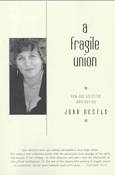
Jessie Mitchell interest in the hidden stories behind the official history of Ancient Egypt inspired her to write ‘Remembering Mardion’. This historical thriller was selected by Michael McGirr for our digital long stories series. We asked Jessie tell us more about the story behind this story and about her reading and writing habits.
To preview and purchase a copy of ‘Remembering Mardion’, click the cover below. And join Jessie and other lovers of short fiction on our online bookclub, Thursday, Oct 29 at 8pm AEST.
Do you remember the name and personality of the first character you ever created?
She was a little girl who could turn into a tiger, who featured in a picture book which I also illustrated myself, using a whole box of textas. The protagonist had the same name as me, because at the age of seven I thought being a giant were-cat would be pretty cool.
What inspired you to write the story which is in the Michael McGirr Selects series?
I’ve always loved the writings of the ancient Mediterranean historians, authors like Plutarch, Dio Cassius, Josephus and Suetonius. Far from being dry, their histories of empire were florid and gossipy, mixing political skulduggery with poetry and myth. The fall of Alexandria to the Roman empire in 30BC gave them plenty to work with, and I became intrigued by one very brief story recounted there: of a palace eunuch who killed himself in a particularly bizarre way after witnessing his queen’s defeat. Without any reliable information, and unable to forget this tale, my imagination took over.
How do you approach a new story? With a clear plan of where the narrative is going, or is it more of a ‘well, let’s see how this goes’ kind of approach?
For me, a story begins with an image, a character, or a particular scene. In the case of ‘Remembering Mardion’, it was a visual picture of Mardion, newly arrived in a city more fabulous than he’d ever dreamed of, being barbered, shaved and dressed and stepping out to begin a new life. As regards the plot, there were only two certainties: that the main characters had to die, and that their deaths would become part of a wider legend that would be endlessly reimagined. This is my version of it.
Is there one particular author or book that you look to as a source of inspiration for your own writing? What are you reading now? Any recommendations?
Writers I keep returning to, again and again, include Margaret  Atwood, for her reflections on truth, memory and myth-making, as well as her inimitable style; Steven Saylor, whose novels of the ancient world are thrillingly written and scrupulously researched; and Joan Nestle, who has inspired so many queer people to delve into our history and our legends and recognise their worth.
Atwood, for her reflections on truth, memory and myth-making, as well as her inimitable style; Steven Saylor, whose novels of the ancient world are thrillingly written and scrupulously researched; and Joan Nestle, who has inspired so many queer people to delve into our history and our legends and recognise their worth.
How does writing fit into your day-to-day life? Do you have any unusual writing habits? Any advice to share for those stuck in a writing slump?
Procrastination seems to be the key for me – I write the most prolifically when I’m putting off other tasks. For those with a story to finish, I recommend scheduling a renovation, a job application and a tax return for the same weekend, and watch the words start to flow….
As a historian, Jessie Mitchell published articles about colonialism, race and popular memory, but she soon became fascinated by the silences in the documentary record about the lives of women and people of unconventional genders and sexualities. Re-imagining the past through fiction came to seem tempting, problematic, and necessary. Jessie lives in Melbourne and works in the community sector.
Book available at Tomely
